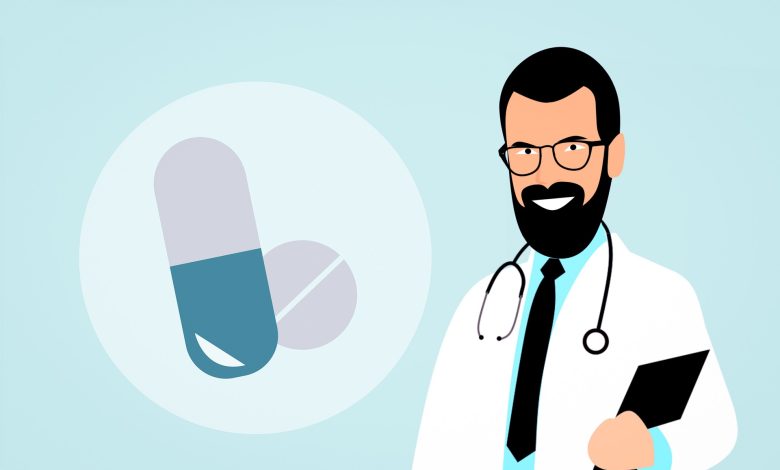The Role of Peer Support in New Jersey’s Recovery Communities

Peer support plays a crucial role in addiction recovery, providing individuals with the emotional, social, and practical support they need to overcome substance use disorders. In New Jersey, peer support is a key element in many recovery programs, helping people stay on track and build meaningful connections during their journey to sobriety. Whether through recovery groups, sober living environments, or individual relationships, peer support is an invaluable resource for those seeking long-term recovery.
What is Rapid Detox?
Rapid detox is a medical procedure designed to accelerate the detoxification process for individuals struggling with substance use disorders, particularly opioids. Unlike traditional detox, which can take days or weeks, rapid detox is typically completed within hours under sedation or anesthesia. The goal is to cleanse the body of drugs quickly, reducing the discomfort and intensity of withdrawal symptoms.
What Is Peer Support?
Peer support is the process of individuals with lived experience in addiction and recovery offering guidance, understanding, and encouragement to others going through similar struggles. Unlike professional therapists or counselors, peer support specialists have firsthand knowledge of the challenges and triumphs of recovery. They provide empathy and relatability, creating a space where people feel understood and less isolated.
In New Jersey, peer support can come in many forms, from formal programs like 12-step meetings (e.g., Alcoholics Anonymous or Narcotics Anonymous) to informal networks of sober friends or mentors. These connections help individuals build a recovery-oriented social circle, which can significantly reduce the risk of relapse.
The Benefits of Peer Support in Recovery
The benefits of peer support in addiction recovery are well-documented. By interacting with others who have gone through similar experiences, individuals in recovery gain several advantages that can enhance their chances of maintaining sobriety.
1. Emotional Support
One of the primary benefits of peer support is the emotional support it provides. Recovery can be a lonely and emotionally taxing process, especially for those who feel alienated from their previous social networks. Peer supporters offer a listening ear, encouragement, and a non-judgmental space where individuals can openly express their struggles. This emotional connection helps reduce feelings of shame and isolation, making it easier for people to navigate the ups and downs of recovery.
2. Accountability
In recovery, staying accountable to oneself and others is critical. Peer support networks offer an additional layer of accountability by providing a system where individuals check in with each other regularly. Whether through daily phone calls, group meetings, or scheduled activities, knowing that someone is tracking your progress can be a strong motivator to stay committed to your recovery goals.
3. Shared Knowledge and Resources
Peers in recovery often have valuable knowledge about local resources, such as treatment centers, support groups, or job programs, which they can share with others. They can also provide tips for managing cravings, handling stress, and navigating everyday life without substance use. This shared wisdom can be particularly beneficial for individuals who are new to recovery and may not yet be familiar with the services available in New Jersey.
4. Encouragement and Motivation
Peer support specialists and members of recovery groups often serve as powerful sources of motivation. By seeing others who have successfully maintained sobriety for months or years, individuals in the early stages of recovery gain hope that long-term recovery is possible. Hearing personal success stories and observing others’ growth can inspire individuals to remain steadfast in their own recovery efforts, even when faced with setbacks.
Peer Support in New Jersey’s Recovery Communities
New Jersey has a variety of peer support programs and resources available to individuals in recovery. These services are offered by a range of organizations, from state-funded programs to grassroots community efforts. Some notable forms of peer support in New Jersey include:
1. Recovery Support Services
New Jersey offers a network of recovery support services, many of which incorporate peer support. These services are often available through addiction treatment centers, outpatient programs, and sober living homes. In these settings, peer support specialists—individuals who have completed their own recovery journeys—are trained to provide guidance and support to those in recovery.
2. Mutual Aid Groups
Mutual aid groups, such as Alcoholics Anonymous (AA), Narcotics Anonymous (NA), and SMART Recovery, are widely available in New Jersey. These groups operate on the principle of peer-to-peer support, with members attending regular meetings to share experiences, discuss challenges, and offer encouragement. Many people find these groups to be essential to their recovery, as they provide a sense of belonging and a structured environment for personal growth.
3. Sober Living Homes
Sober living homes in New Jersey often serve as hubs for peer support. These homes provide a safe, substance-free environment for individuals transitioning out of inpatient treatment or detox. Residents share their recovery experiences with one another, forming tight-knit communities that offer both emotional and practical support. Living alongside peers who are also committed to recovery can reinforce healthy habits and foster a sense of camaraderie.
4. Recovery Coaches
Many individuals in New Jersey also work with recovery coaches—trained peers who provide one-on-one support to those in early recovery. Recovery coaches help individuals set and achieve recovery goals, connect them with local resources, and offer ongoing emotional support. The relationship between a recovery coach and a client is based on mutual respect and shared experience, making it an effective form of peer support.
The Role of Peer Support in Reducing Relapse Rates
One of the most significant benefits of peer is its ability to reduce relapse rates. Studies have shown that individuals who engage in peer support are more likely to maintain their sobriety and less likely to experience relapse compared to those who do not have such support. This is because peer helps individuals stay connected to others who understand their struggles and can provide ongoing encouragement and accountability.
In New Jersey, recovery communities that emphasize peer play a crucial role in helping individuals avoid relapse. By staying involved in peer programs or maintaining relationships with sober friends and mentors, individuals are more likely to develop coping skills, build resilience, and remain motivated to stay on the path to recovery.
Subutex vs Suboxone: What’s the Difference?
Subutex and Suboxone are both medications used to treat opioid addiction, but they differ in their composition and application. Both contain buprenorphine,subutex vs suboxone a partial opioid agonist that helps reduce cravings and withdrawal symptoms. However, Suboxone includes an additional ingredient—naloxone, an opioid antagonist that deters misuse.
Conclusion
Peer is a vital component of New Jersey’s recovery communities, offering emotional, social, and practical to individuals struggling with addiction. Whether through mutual aid groups, recovery coaches, or sober living environments, peer fosters connections that help people stay accountable, motivated, and hopeful throughout their recovery journeys. For anyone seeking long-term recovery in New Jersey, embracing peer can be a transformative and empowering experience that significantly improves the chances of lasting sobriety.





